Executive
The Afghanistan Papers
Afghanistan was an unwinnable quagmire from the start. Everyone involved in this debacle knew it and did it anyway, at a frightful cost of life.
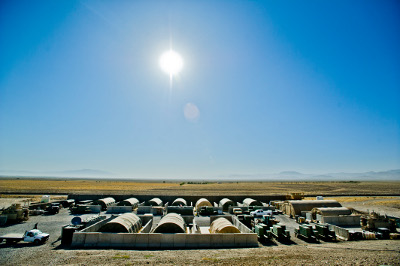
Hello, this is Darrell Castle with today’s Castle Report. I am now 6 weeks post surgery to repair a severed tendon in my left knee. I am happy to report that I am making great progress toward being able to walk again. This week I began physical therapy and I can now bear some weight on my leg. So thanks for bearing with me and thanks for the prayers and well wishes.
2019 in review
Since this is the beginning of the New Year, a year in review episode would be appropriate. What was the biggest story of the year? My vote would go to the never ending impeachment investigation against President Trump. But there are the presidential election campaigns of all the Democrats. Then you have the Constitution becoming ever more irrelevant because it is voluntary and not self-enforcing so goodbye Constitution. I could also talk about rising debt at every level of government and the public, and the inevitable debt crises.
Instead I have decided to revisit the Middle East, specifically Afghanistan. Where do we stand in Afghanistan after 18 years of fighting, dying and killing? A New Year is a good time to ask that question.
History of American involvement in Afghanistan
Washington invaded Afghanistan 18 years ago. As a result America has suffered more than 2400 dead Americans and more than 20,000 wounded Americans. We also see more than 110,000 Afghan dead and the expenditure of more than 1 trillion dollars. We don’t have to wonder what it was all about anymore because a report in the Washington Post published December 9, 2019 tells us. The report consists of about 2000 pages of material. A court has ordered the Office of the Special Inspector General for Afghanistan Reconstruction to release this to the Post.
The Afghanistan Papers – what exactly do they tell us?
The Report paints a Robert McNamara type picture of America’s entry into and occupation of Afghanistan. McNamara was Secretary of Defense, and therefore responsible for the conduct of much of the Vietnam War. In a televised interview after the war he said it was all a mistake that we shouldn’t have made. He said we, and by that he meant he and President Johnson. LBJ created the lies and deception to justify what they had already decided to do. The Afghanistan Papers, as the Post calls the Report, I suppose to remind us of the Pentagon Papers of Daniel Ellsberg fame, paints a devastating picture of the lying fraud that made up U.S. war policy and continues to do so to this day.
The report consists of interviews and recorded conversations of those who began the war, as well as the generals and bureaucrats who conducted it. It cuts across the Bush and Obama Administrations and points out that the Trump Administration is continuing down the same path.
Victory was never possible
The documents contradict a long chorus of public statements telling us that victory was just around the corner and all the while their private comments reveal that it was all just a pack of lies. They knew and admitted they knew that the war was unwinnable from the start and that nothing of any value could be accomplished there. The “good war” in Afghanistan ,as President Obama called it, only required winning the hearts and minds of the Afghan people.
Three administrations bogging themselves down
The Report reveals three administrations at the presidential level, all acting in collaboration with military officers and civilian bureaucrats who lied deliberately, repeatedly, and systematically to the public and especially to the media about the actual conditions in Afghanistan. Thousands of documents reveal how despite knowing that the struggle was pointless and unwinnable, additional troops were continually added or “surged” into the struggle. These same officials regularly overstated the success the U.S. had in winning hearts and minds. They simply made up or invented much of the news coming from the war. They understood clearly that the war was unwinnable and a waste of lives and resources.
Afghanistan became a bipartisan problem
Like many of the problems for which Democrats and Republicans attack each other attempting to assign blame, the Afghanistan War was and is bipartisan. One article published in The New Republic points out that the documents reveal a bipartisan consensus to lie about what was actually happening in Afghanistan. And what was happening? Chronic waste and chronic corruption, one ill conceived scheme after another. This resulted in a near-unmitigated failure to bring peace and prosperity to the country. Both parties had reasons to engage in the lying and the cover-up. For Bush it was his global war on terror. For Obama it was the good war, as opposed to Iraq the bad war.
The true cost? No one can say
What is the true cost of Afghanistan in terms of dollars? No one seems to know exactly and my guess is that no one wants to know. The Report makes it clear that the cost exceeds one trillion dollars and counting. It is also clear that as soon as the U.S. troops were on the ground, the occupiers, i.e. the politicians and bureaucrats, began to flood the country with money which is customary in U.S. wars now, but of course, it makes corruption inevitable.
Hiding the cost
One contractor described in the Report how he was required to spend 3 million dollars per day on projects in an area the size of a U.S. county. Unlike U.S. boondoggles, he typically did his boondoggle for communities of mud huts with no windows. U.S. Army colonel Bob Crowley described how at headquarters every data point was altered to present the best possible picture. He went on to say that everything was totally unreliable, but we became a self-licking ice cream cone.
It’s easy to see how the American people have been misled and even brainwashed by their government. The media, such as the Washington Post, which published this story, and the New York Times, acted as the government’s mouthpiece, often publishing government press releases verbatim. Honest efforts at journalism were stifled, as were politicians who sought the truth. Ron Paul and a few others come to mind.
Benefiting from the Afghanistan war
Who benefits from all the waste? Who benefits from more than one trillion dollars of taxpayer money, but mostly debt which stifles our future standard of living? The answer to those questions probably explains the whole war. What about the more than 2400 dead on the U.S. side. This month that number was raised by two, as two men were killed when their helicopter crashed. The Taliban took credit for destroying the helicopter and the men. What about the more than 20,000 wounded and the more than 110,000 Afghan dead; no one knows how many Afghans have been wounded and no one wants to know.
If those who perpetrated this disaster knew from the beginning what it was, can there be any doubt that the government from top bottom contains a lot of lying psychopaths? I don’t use that term loosely by the way. I don’t refer to leaders of my own government as psychopaths without evidence.
A psychopathic mindset
According to the Diagnostic and Statistical Manuel of Mental Disorders, psychopaths have a poor sense of right and wrong; they can’t understand or share another person’s feelings. They have no conscience or that little voice that lets us know we’re doing something wrong. If he lies to you or steals your money he won’t feel any qualms though he may pretend to. I submit that psychopath fits those described in this Report perfectly. Did they care or feel remorse for the lives they were destroying? If the answer is no, then psychopath is an appropriate description of them.
Thanks for having to serve for—nothing?
Finally folks; to all the dead, thanks for your service; if you were left with no legs or no arms, thanks for your service too; blind or with permanent hearing loss, well thanks for your service; PTSD so bad you can’t hold a job or have a marital relationship, thanks for your service; depressed to the point of taking your own life, thanks for your service too. It was apparently all just a trillion dollar boondoggle but thanks anyway.
At least that’s the way I see it.
Until next time folks,
This is Darrell Castle.
Darrell Castle is an attorney in Memphis, Tennessee, a former USMC Combat Officer, 2008 Vice Presidential nominee, and 2016 Presidential nominee. Darrell gives his unique analysis of current national and international events from a historical and constitutional perspective. You can subscribe to Darrell's weekly podcast at castlereport.us
-

 Education3 days ago
Education3 days ago‘Grading for Equity’: Promoting Students by Banning Grades of Zero and Leaving No Class Cut-Ups Behind
-
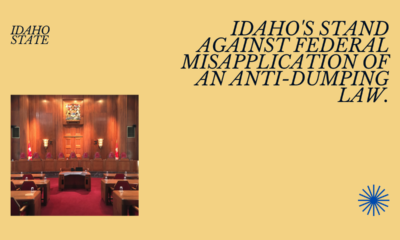
 Family3 days ago
Family3 days agoIdaho defends against abortion mandate
-
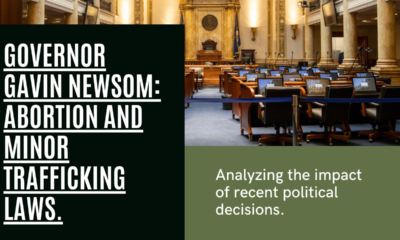
 Civilization4 days ago
Civilization4 days agoNewsom plays silly abortion politics
-
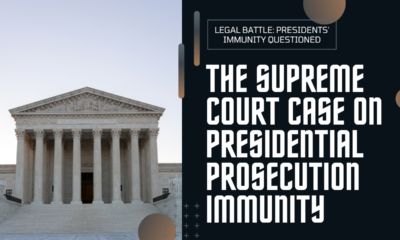
 Constitution2 days ago
Constitution2 days agoPresidential immunity question goes to SCOTUS
-

 Civilization4 days ago
Civilization4 days agoWaste of the Day: China Still Owes Over $1 Trillion to American Bondholders
-
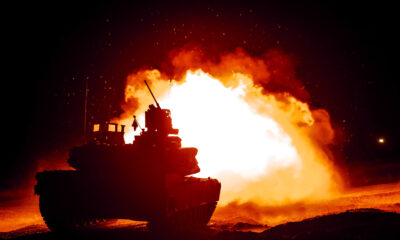
 Civilization4 days ago
Civilization4 days agoCurrent Conflicts Demonstrate Need for More and Better Tanks In Eastern Europe
-

 Civilization2 days ago
Civilization2 days agoMarine Corps Force Design: In Defense of Chowder II
-

 Education3 days ago
Education3 days ago‘Grow PA’ Plan Helps Solve Economic, Higher Education Challenges


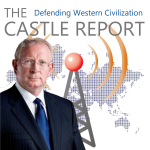


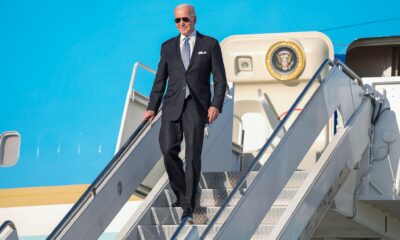





[…] weakness. That is the U.S. position in Afghanistan, especially with the release of the Afghanistan papers in December, which we talked about, and with this being a presidential election […]